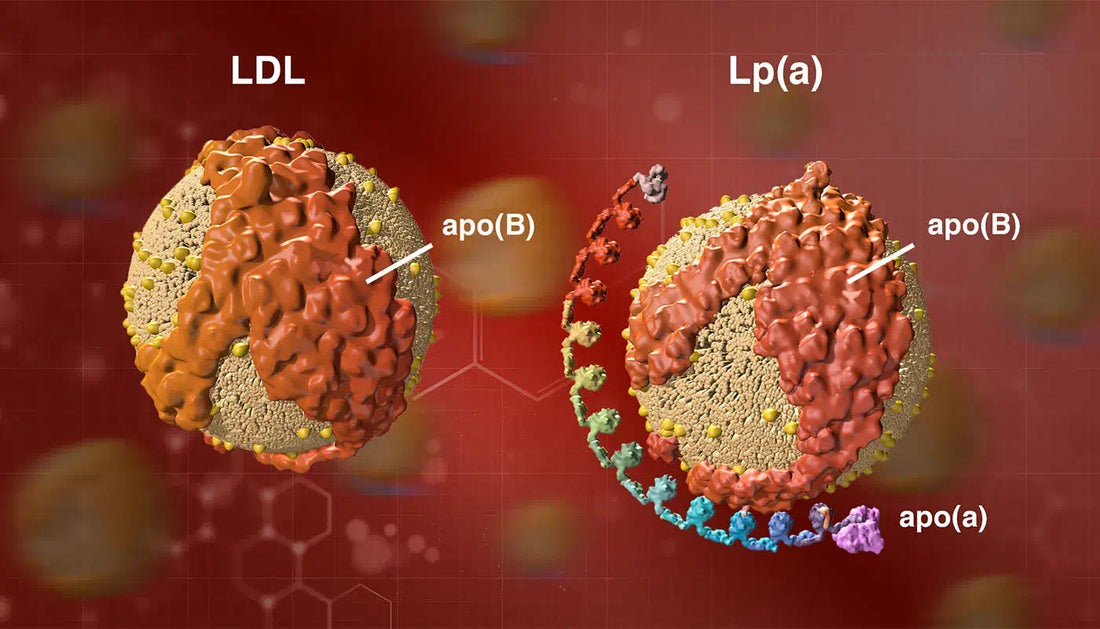
What is Lipoprotein(a) and Why Should You Care?
Share
You may have heard of cholesterol, but have you heard of Lipoprotein(a), or Lp(a)? This is a type of fat particle found in your blood, and too much of it can increase your risk of serious heart problems like heart attacks and strokes. What makes Lp(a) different is that it is mostly determined by your genes—meaning you can have high levels even if you live a healthy lifestyle.
Lp(a): A Hidden Risk for Your Heart
About 1 in 5 people worldwide have high Lp(a) levels, but most don’t even know it. Unlike cholesterol or blood pressure, Lp(a) isn't usually tested in routine checkups. But studies show that high Lp(a) can be just as dangerous as smoking or having diabetes when it comes to heart disease.
The danger is that many people only find out they have high Lp(a) after something bad happens—like a heart attack. That’s why doctors and health experts are now calling for more testing and awareness.
The Brussels Declaration: A Global Wake-Up Call
In March 2025, experts from around the world met in Brussels for the first global summit focused on Lp(a). They created a powerful document called the Brussels Declaration. Its main goal? Make Lp(a) testing a standard part of heart health checkups around the world.
The declaration asks governments to:
- Include Lp(a) testing in national heart health programs
- Make the test available at least once in everyone’s lifetime
- Ensure the test is free or covered by health insurance
- Help doctors and the public learn more about Lp(a)
Why Testing Matters—Even Without a Cure
You might wonder, “What’s the point of testing if there's no specific medicine for high Lp(a) yet?” That’s a fair question. But testing still helps. Knowing your Lp(a) level means you and your doctor can take steps to reduce your overall heart risk.
For example, if your Lp(a) is high, your doctor might focus more on lowering your bad cholesterol (LDL), managing blood pressure, encouraging regular exercise, and helping you quit smoking if needed.
Family History Counts
Because Lp(a) levels are inherited, if one person in a family has high Lp(a), other family members might too. Testing one person can help protect the whole family. In fact, the declaration recommends that close relatives also get tested when someone is found to have high Lp(a).
Testing Shouldn’t Mean Discrimination
The declaration also points out that testing positive for high Lp(a) is not the same as having a disease. It’s a risk factor—like knowing that your family has a history of heart problems. It should not affect things like insurance or job opportunities. The goal is to help people take charge of their health, not to penalize them.
What You Can Do
- Ask your doctor about getting tested for Lp(a), especially if you have a family history of heart disease.
- Live heart-healthy: even if Lp(a) is high, lifestyle changes like eating well, staying active, and not smoking make a big difference.
- Talk to your family: if you have high Lp(a), encourage your loved ones to get tested too.
- Stay informed: follow updates from health organizations and support policies that make Lp(a) testing more available.
Conclusion: It’s Time to Test
Lipoprotein(a) is a silent risk factor that affects millions of people. Thanks to the Brussels Declaration, there is now a strong international push to bring this issue into the spotlight. With better awareness, testing, and prevention, we can save lives and protect more hearts.
